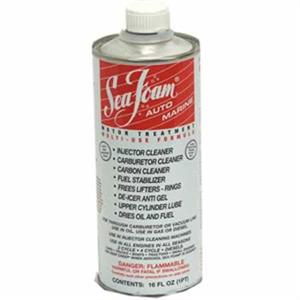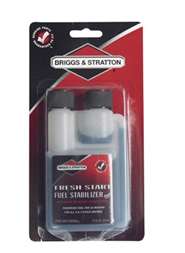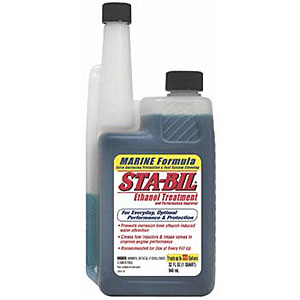Ethanol is your lawn care equipments' enemy
Today's gasoline contains 10% Ethanol. The EPA Clean Air Act requires
gasoline to have additives to oxygenate the fuel so it burns more completely.
MBTE was being used for this purpose, until it started showing up in drinking
water. The current blends now include 10% Ethanol. But Ethanol does
present a few problems:
-
Equipment stored with gasoline containing Ethanol in the fuel tank is more
likely to have problems with the alcohol causing component corrosion,
deterioration, and breakdown.
-
Ethanol is much more hygroscopic than regular gasoline. This holding of
dissolved or suspended water can lead to more component corrosion; and gum,
varnish, and carbon deposit formation problems.
-
Ethanol is not as volatile as gasoline, therefore as the percentage of
alcohol increases; the engine becomes progressively more difficult to start in
cold weather conditions.
-
Ethanol is a strong solvent and has been used by industry for hundreds of years to clean various types of contaminants and to dissolve and suspend solids. It will continue to dissolve fuel lines, gaskets, fuel filters, etc. as it sits in your lawn equipment.
-
Gasoline with dissolved solids (plastics, styrenes, rubber materials, etc.)
that will tend to reform as the fuel evaporates. The reforming of the dissolved
material shows up as deposits in the fuel system and engine. This material has
shown up as deposits on the throttle plate, injectors piston crowns, and
exhaust valves. It is also a problem with PCV systems and turbochargers.
Here are a few suggestions to improve the life of your lawn care equipment:
-
NEVER use E85 Ethanol
-
A few gas stations still sell gasoline without Ethanol
Pure-Gas.org maintains a database of ethanol-free gas stations in the USA
-
Run your equipment until it runs completely out of gas. Not storing gasoline containing Ethanol in the tank reduces component corrosion, deterioration, and breakdown.
-
Use a fuel additive designed to combat the effects of Ethanol. Additives can be purchased at automotive parts stores, some gas stations, and most super stores like Wal-Mart. Specialty Services sells additives made by Seafoam
and Briggs & Stratton


